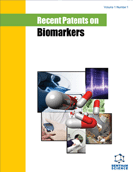Abstract
Probiotics are intestinal microorganisms that enhance gastrointestinal homeostasis by positively affecting the intestinal microbiota balance. The commensal gut microbiota confer health benefits to their host by helping dietary digestion, regulating gut immunity, maintaining the microbial balance, and preventing pathogen colonization. Probiotics are increasingly being used for irritable bowel syndrome, inflammatory bowel diseases, necrotizing enterocolitis, acute infectious diarrhea and antibiotic-associated diarrhea. Several studies suggest that probiotics may be clinically used as a prophylactic treatment to prevent colon cancer development. Although, many of the health-promoting aspects have yet to be definitively proven in humans, eliciting a change away from gut flora dominated by potentially harmful bacteria toward a more benign, or beneficial, composition appears to have great value. The mechanisms of action of probiotics against gastrointestinal pathogens addressed in diverse patent applications include modulation of the immune and non-immune defense mechanisms of the host. The use of innovative biomarkers at mRNA or protein levels to predict whether immunomodulatory bacteria are likely to be successful in treating certain types of diseases is also reviewed. Moreover, elucidations of the molecular interactions and mechanisms that underlie the host-health effects observed are discussed.
Keywords: Biomarkers, cytokines, immuno-modulation, intestinal mucosa, probiotics, gastrointestinal homeostasis, infectious diarrhea, necrotizing enterocolitis, irritable bowel syndrome, inflammatory bowel diseases
 9
9

